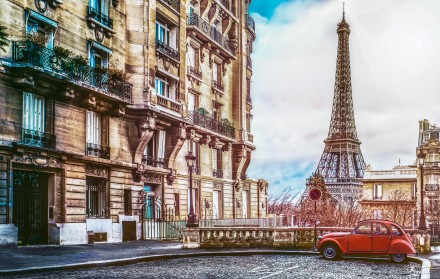Last week, I changed a red car to solid gold and then, in the lynda.com Online Training Library, to jet black. This week, I do something very nearly resembling the opposite. That is to say, I take the “black” (cuz they’re really dark gray) stripes on a zebra and render them in color. Which you might not regularly find yourself doing to a zebra. But you may want to do, say, a piece of black-and-white artwork.
Here’s the official description from lynda.com:
Although you may have heard that a leopard can’t change it’s spots, a zebra can definitely change its stripes—with a little help from Deke and Photoshop. In this week’s free technique, Deke adds a little pizazz to an otherwise monochromatic creature, by changing the black stripes on a zebra from black to red, green, and blue. The color itself is applied pretty haphazardly. Then Deke efficiently reins it in with an easy-to-craft layer mask using the Color Range command you saw in last week’s technique, only this time it’s even easier to apply. After employing a little advanced blending and then cleaning up the mask by hand, Deke actually manages to defy conventional wisdom and change the tediously typical zebra on the left to the flashy figment of Deke’s imagination on the right.

OK, so admittedly, your work may not call for a lot of zebra re-striping. But this technique can be effective for changing all sorts of black areas of a photo into another color, and the results are realistic (once you suspend your disbelief in candy striped zebras, of course). Try variations on Deke’s technique in your own work and let us know how it goes. Who knows, you may be able to change those leopard spots after all.
Every week, it’s Deke’s Techniques. There’s another new free video next week, and lynda.com members can see the entire collection, along with lots of exclusive movies just for members.
Next week’s technique: How to draw trendy swirls in Illustrator. Here’s a preview:

Isn’t that slick? Be here next week to learn more.



Be the first to drop some wisdom...